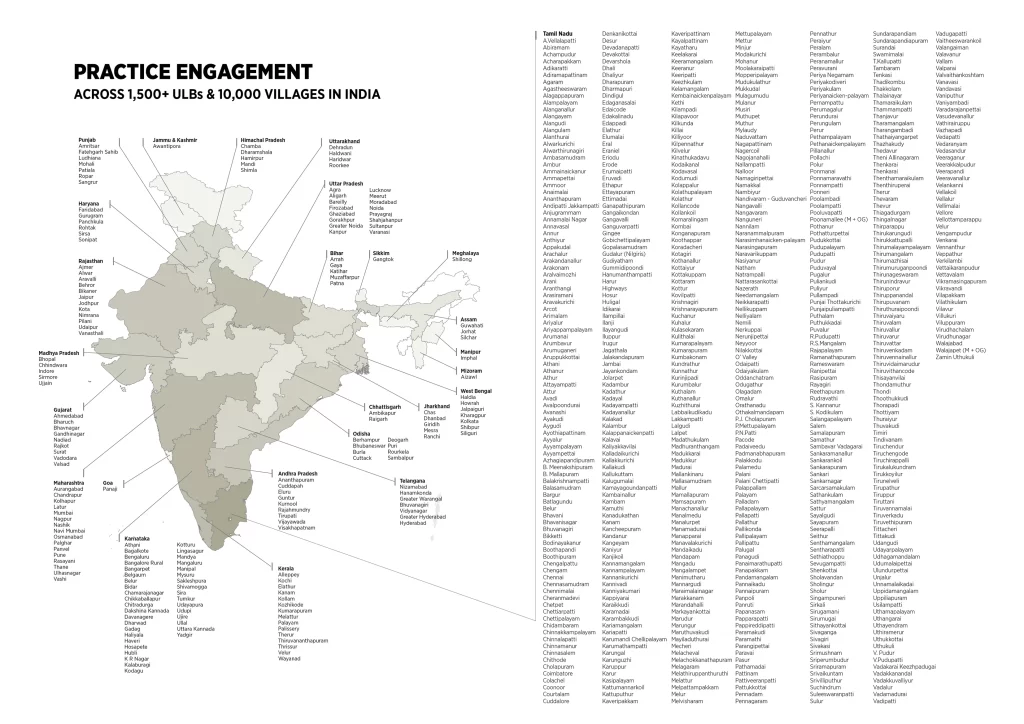The IIHS Practice Programme provides advisory services to national and state governments, public, parastatal and municipal agencies, international development agencies and private firms at the interface of human settlements and urbanisation. Practice forms a core part of the IIHS mission of contributing towards sustainable urban transformation. Practitioners also teach learners—both in theory classes and in practica. Learners also have opportunities to work on IIHS Practice projects, thereby getting exposure to a variety of work in real contexts. This enables synergies between teaching, research and practice.
One of the core objectives of the IIHS Practice Programme is to build institutional relationships, particularly for the public and non-profit sector. Projects undertaken at IIHS are selected with a clear focus on the type and scale of impact. As a thought leader, IIHS aims to demonstrate its innovative thinking as well as capacity for change through the projects that it selects and its ability to establish new and innovative solutions. The IIHS Practice Programme thus seeks to critically influence and enable urban transformations.
The Practice Programme at IIHS uses interdisciplinary, cutting-edge work based on an understanding of urban systems in India; the drivers of change within those systems; while challenging the assumptions that otherwise guide those systems. The programme proposes solutions that are inclusive and sustainable as it is grounded in the practical realities of urban development.
The Practice Programme has a number of strengths.
• It is committed to an interdisciplinary approach even while working on sectoral projects.
• It benefits from the robust Research Programme at IIHS as it has access to latest research that is used to shape Practice projects.
• It keeps the Research Programme abreast of practices on the ground so that research takes place on up-to-date models and data.




